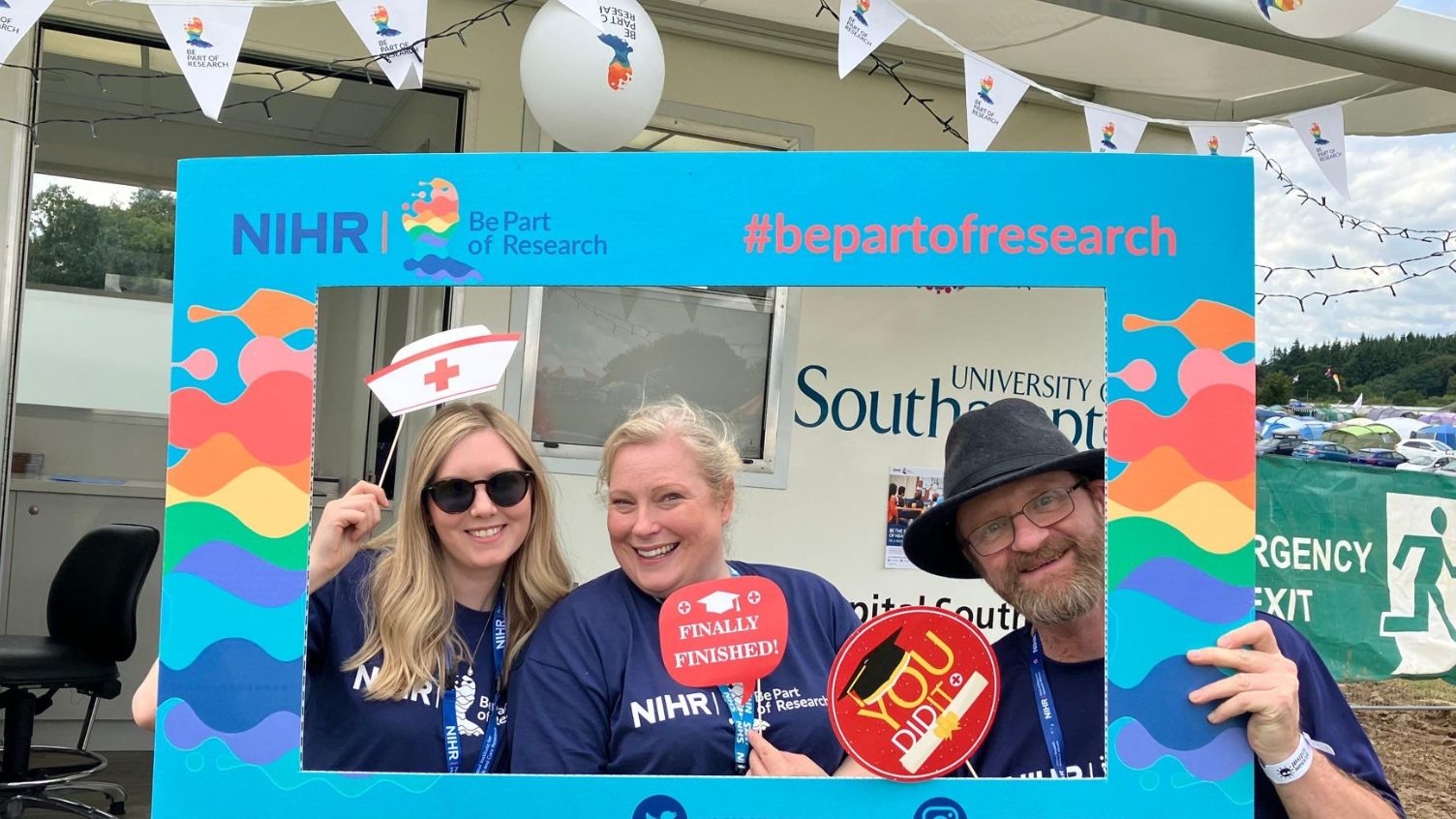“If people aren’t prepared to volunteer then nothing will move forward” - COVID-19 vaccine trial volunteer
- 19 May 2022
- 3 min read
Clare shares her experience of taking part in COVID-19 vaccine research in North West London.
Patient story: Clare
Clare, from London, an ex-researcher who now teaches, wanted to do something useful when the COVID-19 pandemic first took hold last year. And it was an article about vaccine research that caught her eye.
"I have a naughty habit of reading the Daily Mail Online", Clare confesses. "And I happened to see it mentioned on there."
“...everyone was really panicked and rather scared.”
It was in April last year, about three or four weeks into the lockdown, when she signed up to take part in the COV001 trial. "At that point, certainly, everyone was really panicked and rather scared", she said.
But finding something useful to do wasn't the only advantage to taking part. "The following week I was teaching clinical trials to students. So it was the first time I'd had a chance to see what I was teaching up close as a volunteer."
The trial — supported locally by the NIHR Clinical Research Network (CRN) North West London — is one of many set-up very quickly to help find a vaccine to beat the COVID-19 pandemic.
It is sponsored by the University of Oxford, and the Principal Investigator at the NIHR Imperial Clinical Research Facility site is Dr Katrina Pollock.
“...there is no way you'd be asked to do anything that you weren't absolutely confident about.”
This was Clare's first time experiencing research from a volunteer perspective. Even with her experience and knowledge (and a PhD in Human Genetics), the right study never came along for her to take part in.
Clare's experience has been a great one so far, with little time commitment. "There was a screening visit, a vaccination visit, two blood tests and another visit for a vaccine", she said.
These visits were all to the NIHR Imperial Clinical Research Facility, part of Imperial College Healthcare NHS Trust. There will be several more visits - but few and far between.
And the external ask has been minimal too. Volunteers receive an online survey via email each week, asking them to report any symptoms.
Clare felt comfortable taking part and has been kept very well informed at each stage. "The amount of signatures you have to give to say that you're confident you've got the information. You know, there is no way you'd be asked to do anything that you weren't absolutely confident about. And they are very clear that you can withdraw at any time."
“...I've had my blood pressure taken three times over the past year, which is more than I've had it done over the past twenty.”
So with this being Clare's first experience as a volunteer in research, did anything unexpected occur? "Well as part of the trial protocol, if you were not definitely post-menopausal, you had to have a pregnancy test", she recalls. "So I've had three pregnancy tests in the last year at my age (54), never having had one in my life before that. I had a good laugh with the nurse about that.
"And I've had my blood pressure taken three times over the past year, which is more than I've had it done over the past twenty."
Taking part has led to some unexpected conversations too. "When asked 'who here's had the vaccine?' on a Zoom call with my choir, I had to put my hand up only halfway. Maybe I've had the vaccine, maybe I've had the placebo. I'll have to wait and see", Clare said. "So that was an interesting conversation."
“...we need to have the right amount of people.”
Talking about her experience has also led to others getting involved too. "My husband signed-up because I was doing it", she said.
And Clare has a message to anyone else who may be thinking about taking part in a study. "If people aren't prepared to volunteer then nothing will move forward. Because we demand this level of testing, we need to have the right amount of people".
- Interested in taking part in vaccine research? Sign up to be contacted for coronavirus vaccine studies.


